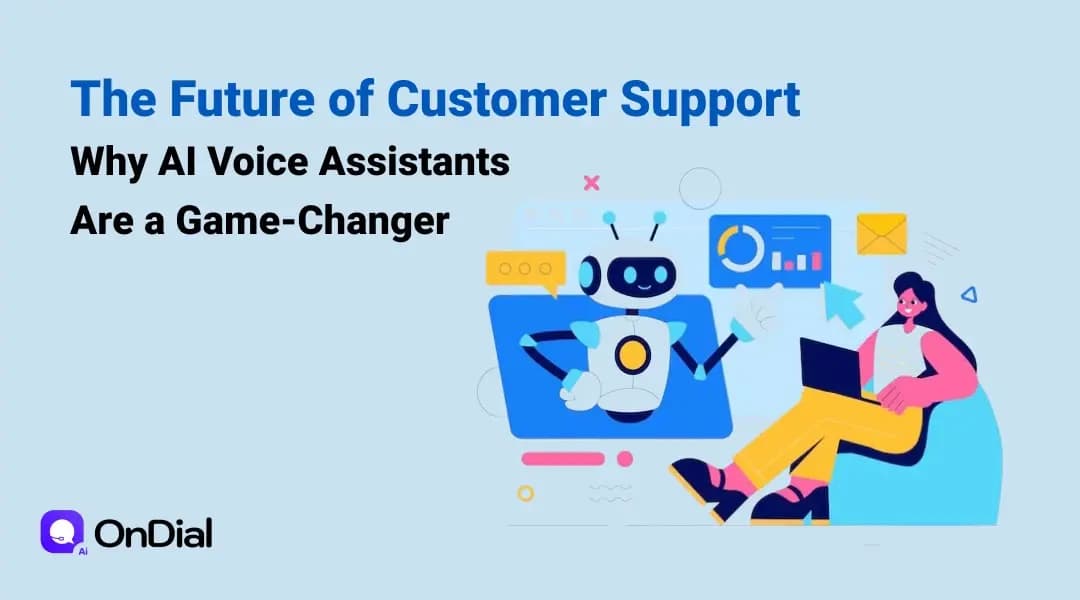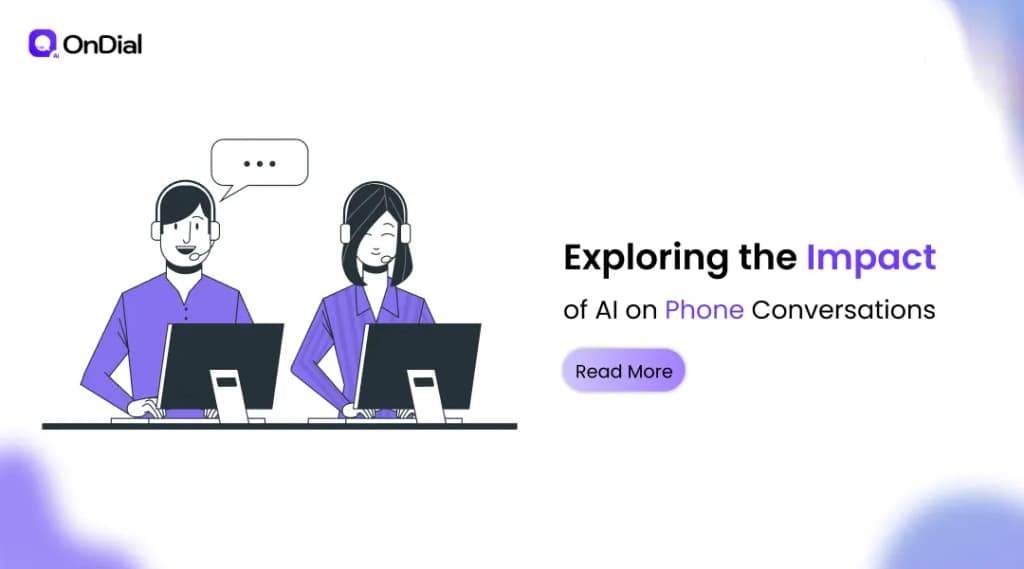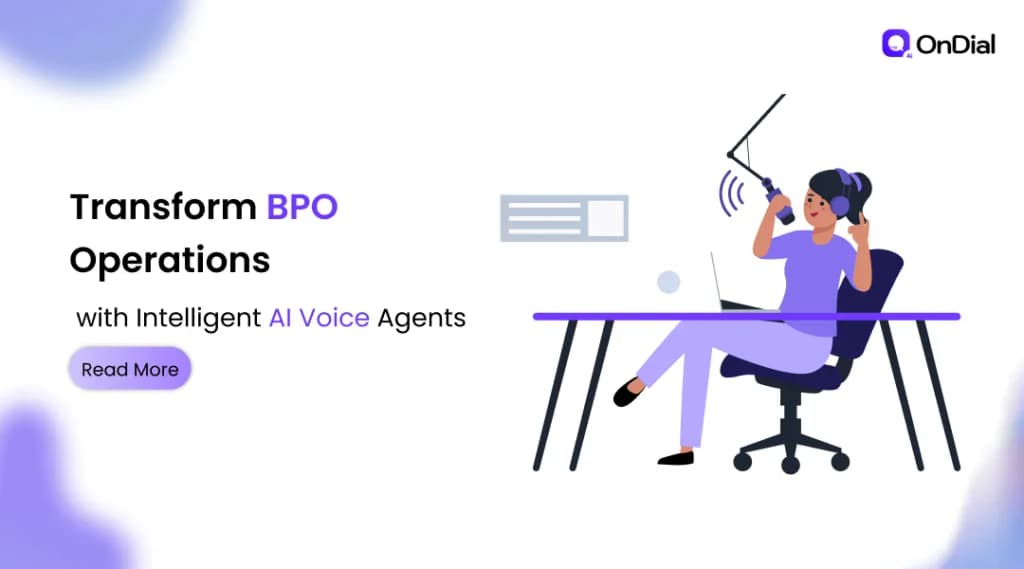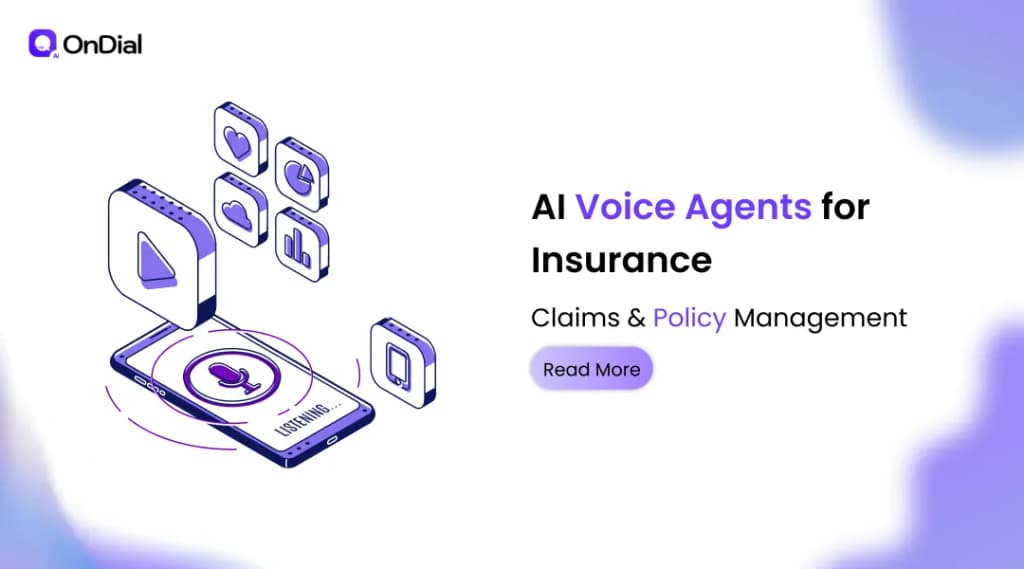I’ve been in enough boardrooms to know this: the words “AI customer support” either light up faces with excitement—or make them visibly tense. And honestly, I get it. For years, we’ve been promised technology that would “revolutionize” customer experience, only to get clunky IVR menus and chatbots that make you want to throw away your phone.
But here’s the thing: we’re not in 2015 anymore. AI voice assistants have grown up, and they’re no longer a novelty. They’re quietly becoming the backbone of how smart companies handle customer conversations. And if you’re still running a traditional call center, you might be burning money without realizing it.
Let’s unpack why.
The Evolving Landscape of Customer Support
Customer support used to be a back-office function. Today, it’s the front line of your brand. One bad experience can go viral on X or LinkedIn. One good one can turn a casual buyer into a loyal advocate.
Customers expect instant answers. They expect 24/7 availability. And they expect personalization that doesn’t feel creepy. That’s a tall order for human-only teams—especially when agent turnover is high and call volumes spike unpredictably.
This is where AI Customer Service Solutions like Customer AI Voice Agents for Growth step in.
Why AI Voice Assistants Are Gaining Momentum
AI isn’t replacing humans. It’s replacing bad experiences.
The rise of conversational AI for businesses is driven by two realities: customer patience is shrinking, and operational costs are rising. Companies that don’t adapt will get left behind. Period.
AI voice assistants are gaining traction because they solve two problems at once: they handle repetitive queries faster and free up human agents to handle the nuanced, emotional cases that actually need empathy.
What Are AI Voice Assistants in Customer Support?
An AI voice assistant is an always-on, AI-powered virtual assistant that can understand natural speech, process intent, and respond conversationally. Unlike a simple IVR tree, it doesn’t just “press 1 for billing.” It listens, understands context, and can resolve issues end-to-end—without handing off to a human unless necessary.
Capabilities include:
- Natural language understanding (NLU)
- Sentiment detection
- CRM integration to pull customer data
- Ability to process payments or trigger workflows
- Learning over time to get better with each interaction
Chatbots live in text. Voice assistants live in conversation. Chatbots are great for asynchronous interactions, but voice assistants shine when immediacy matters—like resolving a blocked account or scheduling a doctor’s appointment.
Why the Future of Customer Support Depends on AI
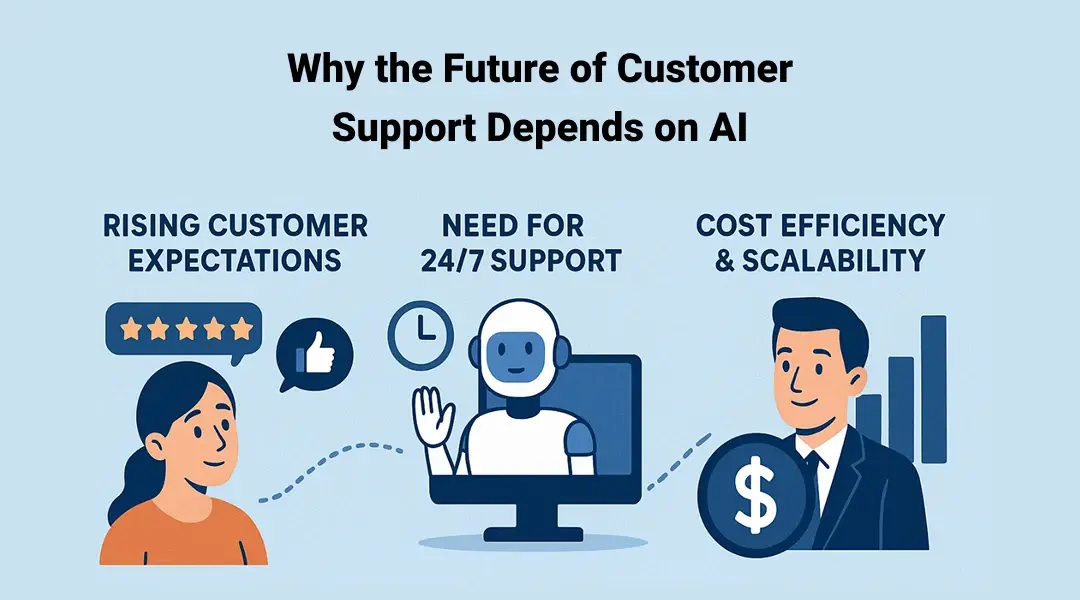
Rising Customer Expectations
Let’s be blunt: no one wants to wait on hold for 18 minutes just to reset a password. AI voice assistants slash wait times and deliver answers on demand.
Need for 24/7 Support
Your customers don’t care about your business hours. They care about their problem at 2 a.m. AI doesn’t sleep, doesn’t call in sick, and doesn’t get grumpy after a double shift.
Cost Efficiency & Scalability
Hiring and training human agents is expensive. Scaling them during peak seasons is even harder. AI voice agents let you scale capacity instantly—without compromising quality.
Top Benefits of AI Voice Assistants in Customer Service
Faster Query Resolution
AI can access knowledge bases instantly, cutting resolution times from minutes to seconds.
Reduced Operational Costs
Every query handled by AI means fewer paid agent hours. That’s direct cost savings.
Multilingual & Global Support
Voice AI in customer experience means your support can speak 10+ languages without hiring separate teams.
Personalized Customer Interactions
AI assistants can greet customers by name, pull up their history, and make recommendations—without sounding robotic.
Improved Agent Productivity
Agents handle fewer repetitive tickets and more meaningful cases, boosting morale and retention.
AI Voice Assistants vs. Traditional Customer Support Models
Human Agents vs AI Assistants
Humans are empathetic but slow at scale. AI is fast but not emotional. The future isn’t about choosing one—it’s about combining both.
Hybrid Support Models for the Best Outcomes
The smartest companies are pairing AI-powered voice assistants with live agents. AI handles Tier 1 tickets; humans step in when complexity or emotion calls for it.
Real-World Use Cases of AI Voice Assistants
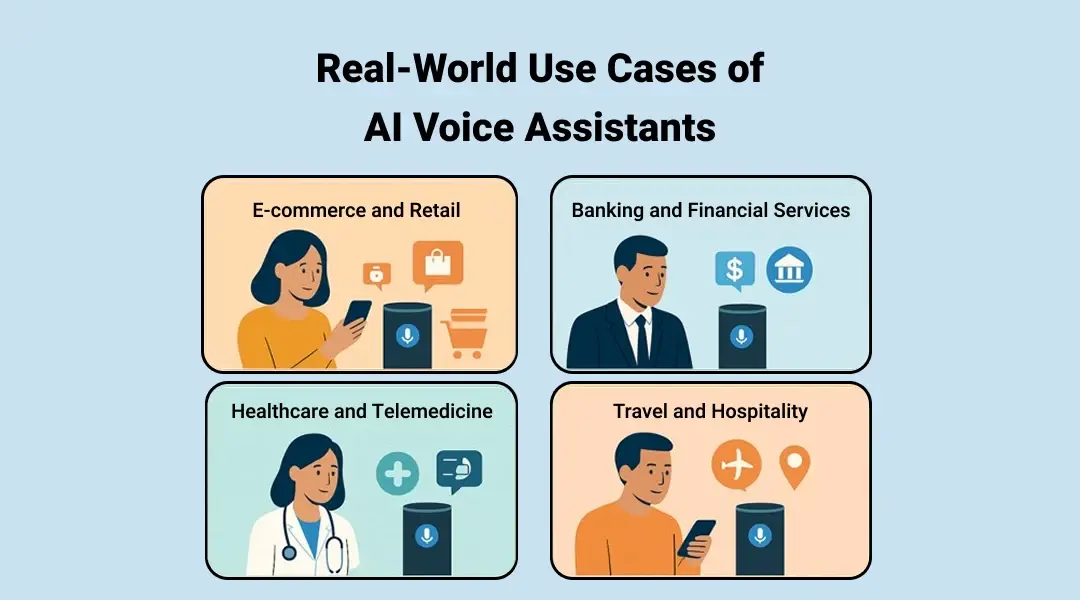
E-commerce and Retail
Order tracking, returns, and shipping updates—all automated.
Banking and Financial Services
Balance inquiries, fraud alerts, and loan application status—handled securely by AI.
Healthcare and Telemedicine
Appointment scheduling, prescription refills, and symptom triage—fast, accurate, HIPAA-compliant.
Travel and Hospitality
Flight status, rebookings, and check-in support—even during disruption chaos.
Challenges and Considerations
Data Privacy and Security
AI systems must encrypt and protect customer data. Choose vendors who are transparent about compliance—like the Best AI Development Company solutions.
Customer Trust and Adoption
Not everyone loves talking to a machine. Make it clear when they’re speaking to AI—and always offer a path to a human.
Balancing AI with Human Empathy
AI is smart, but it’s not human. Keep humans in the loop for emotionally charged scenarios.
Conclusion
If you’re still waiting to “see where AI goes,” you’re already behind. AI voice assistants aren’t an experiment—they’re a competitive advantage. Companies adopting them now are not just saving money, they’re creating better customer experiences. And that’s what drives loyalty.
So, do you want to be the brand people rave about—or the one they roast on social media? Your move.
